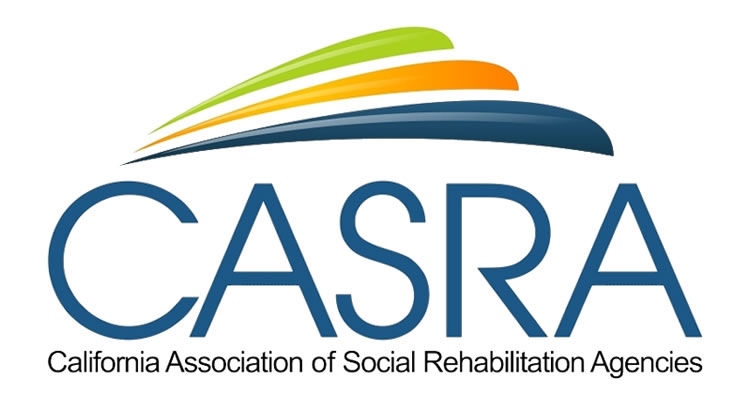CASRA 2021 Fall Conference
Event Program
DAYS:
October 19 - October 26 - November 02
October 19, 2021
| Title | Speaker | Description | Goals | CEU |
|---|---|---|---|---|
Opening Session |
In this 1/2 hour kickoff to the Fall Conference, Chad Costello will share his thoughts about where CASRA is now, and where he envisions it's future as he takes over as Executive Director. |
0 |
||
Harm Reduction |
Handout(s): |
Harm Reduction, though originally developed in the substance use field, mirrors the principles of psychosocial rehabilitation. This workshop will illustrate how using harm reduction in the delivery of services is not only empowering to staff but provides a more meaningful opportunity to engage people as they walk and define their recovery journey. The workshop will challenge many macro assumptions about mental health, substance use, and other behaviors and provide direct service staff with an intervention crosswalk that is more person centered than the one shoe fits all approach that permeates our field. |
To goal of this training develop participants' willingness and ability to provide integrated, person-centered care to people who are actively using substances. As a result of this training, participants will be able to:
|
2.5 |
October 26, 2021
| Title | Speaker | Description | Goals | CEU |
|---|---|---|---|---|
California Department of Rehabilitation - The Current Course and the Future Direction |
The California Department of Rehabilitation (DOR) |
Participants will:
|
0 |
|
Unemployment is Bad for You |
Handout(s): |
Supporting people with behavioral health challenges to get a job is one of the most highly researched and successful strategies for recovery. This workshop will provide an in-depth review about the importance of avoiding long term unemployment for people with psychiatric disabilities. It is intended for all behavioral health providers, not just employment specialists. It will identify the skills necessary to support individuals at different stages of engagement. We will look at the state of the current practice; what progress has been made and what has impeded more significant accomplishments in this area.Participants will learn the impact of long-term unemployment on physical and mental health, and how to effectively support individuals to move towards employment as a critical component part of their recovery plans. |
Participants will learn the impact of long-term unemployment on physical and mental health, and how to effectively support individuals to move towards employment as a critical component part of their recovery plans. Objectives:
|
2 |
November 02, 2021
| Title | Speaker | Description | Goals | CEU |
|---|---|---|---|---|
Painted Brain and Digital Literacy: Our Tech Suite |
Handout(s): |
In this presentation, Rayshell Chambers--MPA, founder and CEO of Painted Brain--will speak on the importance of digital literacy to mental health constituents. Chambers will elaborate on her and her team's experience working as a consultant with both Los Angeles County and Santa Barbara County in their efforts to find digital mental health apps that help individuals with their mental health and overall wellness. Chambers will also speak on the importance of peers being at the forefront of the mental health movement and how essential consumer feedback was when working on this project. |
This workshop will show how digital literacy is integral to creating and fostering therapeutic alliances among various behavioral wellness intervention domains. Research from outside sources suggests that it is possible to utilize digital therapeutic apps to simulate a therapeutic alliance like that of an in-person relationship. Our own research and findings that are highlighted in this presentation shows that communities surveyed are willing to use this new technology as a supplement to traditional therapy. Our research shows that these relationships are effective in improving overall wellness and digital therapeutic alliances can be similarly beneficial to traditional therapeutic alliances. |
0 |
We All Belong: Four Paths to Belonging |
Most of us think of belonging and inclusion as the result of the number and quality of relationships in different parts of our lives. But what if that limited definition of belonging actually restricts our ability to feel like we belong? This session explores the idea that humans desire four different kinds of belonging, only one of them related to other people. When we expand to this larger understanding of belonging, it can result in very powerful feelings of belonging, even though we may have limited social connections. This session provides an overview of the Four Paths to Belonging, and will give you the opportunity to explore how each of the four paths offers opportunities for connectedness, action, and love to grow in yourself and the people you support.Why expanding beyond social inclusion is necessary for belonging. |
Many of the individuals we support on their path to recovery can experience times of isolation and disconnection. Through this workshop, participants will have an expanded understanding of what contributes to an individual’s sense of belonging, and become more competent in helping people with mental health challenges have a greater sense connectedness and inclusion. By the end of the workshop, participants will be able to:
|
2 |
